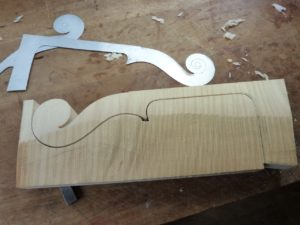I’ve spent quite a few hours driving over the past couple of months. Long road trips always give me the opportunity to do some of my best thinking. What I think about isn’t always terribly important and plenty of the conclusions I formulate don’t end up having much real-world application…wait, where was I going with all of this?
SOUND. That’s right. Perhaps it is that I have two children studying the cello in my house, but I’ve been thinking quite a bit about sound. Music teachers at all grade and age levels have a highly complex task of leading students along the road of knowledge. In the beginning, music students often tackle the various technical demands of an instrument in relative isolation – first we’re going to learn the left hand, then the right, now we add dynamics, etc. Even more advanced students fall into the same pattern – first we’re going to learn shifting, then vibrato, now we put them together, etc.
When I was working with my youngest child the other day with her cello, I could tell she was trying to rush to the end of practice time because she wasn’t paying any attention to the sound she was producing. I found myself saying to her, “what’s the point of knowing the notes if you aren’t producing a sound you want to hear?” That got my thinking about my experiences at the shop, where I occasionally hear a student tackling a difficult concerto but paying very little attention to whether or not they’re producing a good sound. Or I’ll ask them to use a simple major scale as a tool to evaluate different instruments and they’ll proceed to rush through the scale without producing the best sound of which they are capable.
So what am I saying? I’m not totally sure. I guess you could call it “A Case for Sound”. The question I keep asking is, “what’s the point of playing with sub-standard tone?” Apart from perhaps the very first months of learning an instrument (and possibly not even then?), why isolate tone/sound as a component of the instrument technique? If you’re going to draw the bow across a string, if you’re going to pluck the string, be intentional about what sound you produce. What constitutes “good sound” in any particular piece or musical moment can certainly vary, but we shouldn’t be apathetic about it.
Perhaps I still don’t know where I was going with all of this…


Recent Comments